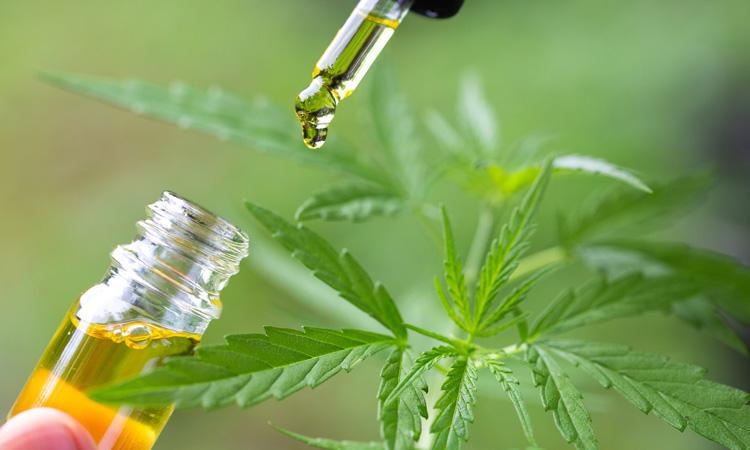This article originally appeared on New Food Magazine.
Jaclyn Bowen, from The Clean Label Project, spoke to Pelin Thorogood, from the Wholistic Research and Education Foundation, about what research is being done surrounding CBD health claims.
In the US, the CBD industry is consistently regarded as the Wild West – a reference to the western US frontier period of roughness and lawlessness. Whether it is consumer lawsuits against brands after testing positive for THC on drug tests, or the US Food and Drugs Administration (FDA) issuing warning letters to brands on unfounded health claims, the CBD industry is deservingly under increased scrutiny.
While CBD is not yet FDA approved for any conditions (with the notable exception of the EpidiolexTMas an anti-seizure medication) many of the National Institute of Health’s (NIH) – and other international studies – have shown promising results for a variety of conditions. The recent passing of the Farm Bill serves to help accelerate this research.
Section 7605 of the Farm Bill extends protections for hemp research. More specifically, section 7501 of the Farm Bill extends hemp research by including hemp under the Critical Agricultural Materials Act. According to the Brookings Institute, this provision not only recognises the importance, diversity, and opportunity of the plant and the products that can be derived from it, but it also recognises that there is a still a lot to learn about hemp and its products from commercial and market perspectives.
I wanted to learn more about what type of research is being done to possibly make these ‘unfounded health claims’ founded. I spoke to Pelin Thorogood, President and Co-Founder of the Wholistic Research and Education Foundation, a public non-profit dedicated to exploring the health benefits of CBD-rich therapeutics through funding clinical and scientific research and leveraging the evidence-based data on education and advocacy.
Q: What is the current state of CBD research?
A: The short answer is there simply has not been sufficient research to date, from either NIH or other sources, primarily due to the Schedule 1 status of CBD and cannabis since 1970. This has led to a paucity of evidence-based data on the short, and long-term health effects of cannabis, as was stated in a recent report on the Health Effects of Cannabis and Cannabionoids from the National Academies of Science, Engineering and Medicine (NASEM). Researchers typically say CBD, and cannabis in general, ‘may or may not be’ beneficial because they simply do not have enough data to conclusively prove its effects across a diverse set of conditions.
Another issue hindering progress has been the lack of access to the quantity, quality and type of research-grade cannabis products necessary. It is important to note that while section 12619 of the Farm bill removed hemp-derived products from its Schedule I status, this legislation alone did not transform CBD research overnight as cannabis based research conducted in the US is still dependent on the nation’s sole provider: The Marijuana Program at the University of Mississippi. Additional guidance is expected from the FDA, DEA (the Drug Enforcement Administration) and NIDA (National Institute on Drug Abuse) around any new regulations governing research. This will hopefully open up much needed access to new sources of research-grade hemp/cannabis.
Q: Where are you seeing the greatest potential in CBD research?
A: CBD consumption has ‘exploded’ over the past few years, driven by anecdotal reports suggesting CBD may benefit everything from chronic pain and insomnia to Parkinson’s, glioblastoma, and Alzheimer’s. Given its broad-based usage, I believe it is absolutely essential to conduct both clinical and scientific research to assess not only its safety and tolerability, but also to explore its mechanisms of action to establish a scientific basis on how and why CBD may be beneficial for so many conditions. Just as importantly, we need a precision medicine approach to better understand personalised differences that may explain why CBD appears to work for some people but not for others.
Q: Which studies do you see as having the greatest potential impact?
A: I am extremely excited about two projects we have embarked on that truly go above and beyond a traditional clinical approach: The University of Utah investigation, “Brain Effects of Cannabinoids”, uses advanced imaging (PET, fMRI) to visualise the personalised effects of various cannabinoids (including CBD isolate, THC isolate and full-spectrum cannabis) in the brains of healthy adults. The objective of this groundbreaking effort is to compare and analyse how the different cannabinoids may result in changes across entire brain networks and neuropsychological functioning, specifically related to attention, memory, processing of novelty and change, as well as stress and pain. In plain English, we will get to see how each of these compounds effect different parts of our brain, responsible for various key functions, differently. The findings of this study have the potential to shape the developing field of cannabinoid therapy by understanding the personalised effects of individual cannabinoids as well offering unique insights into the so-called ‘entourage effect’.
The UC San Diego research project “Investigating Cannabinoids in Autism Spectrum Disorders” is truly a first of its kind, multi-disciplinary study that explores whether CBD can reduce behavioral abnormalities in children with Autism, and if so, how. Combining clinical, genetic, scientific and advanced mathematical techniques across the same cohort of patients, this comprehensive exploration of CBD efficacy seeks to establish the various mechanism of action that may lead to the therapeutic promise of CBD. The objective is to answer the elusive question as to why CBD may work, and not just for just Autism, but also for other neurodevelopmental disorders.
Q: What will be the effect of this research on FDA policy?
A: Understanding specific mechanism of action (eg, determining if CBD reduces anxiety in autistic children by correcting imbalances in their inhibitory neurotransmitters) or discovering biomarkers for cannabis efficacy for certain conditions would serve as landmarks in precision medicine. These findings would provide the FDA with the evidence-based data necessary to approve CBD use for certain indications or for certain populations.



